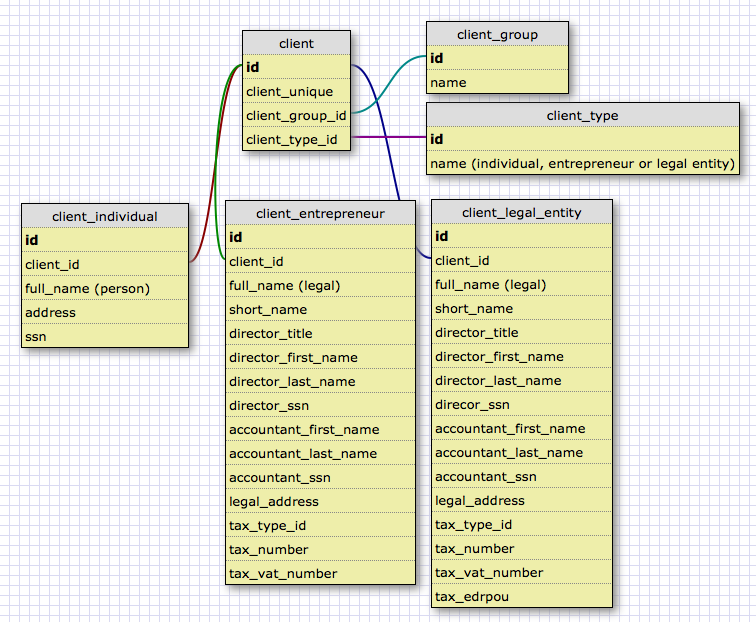Consider an accounting system as an example. I have an Entity called Client. Client can be of different types, with different fields applicable to different types. I consider creating separate tables for different types of Client, each having fields applicable to the respective type and have one master table referencing all of them and have fields applicable to all types.
Currently, I come up with the following design:

But I don't think my design is efficient enough (or even correct and free of errors). What would you suggest? Also, if this is important in any way, I am planning to utilize MariaDB.
